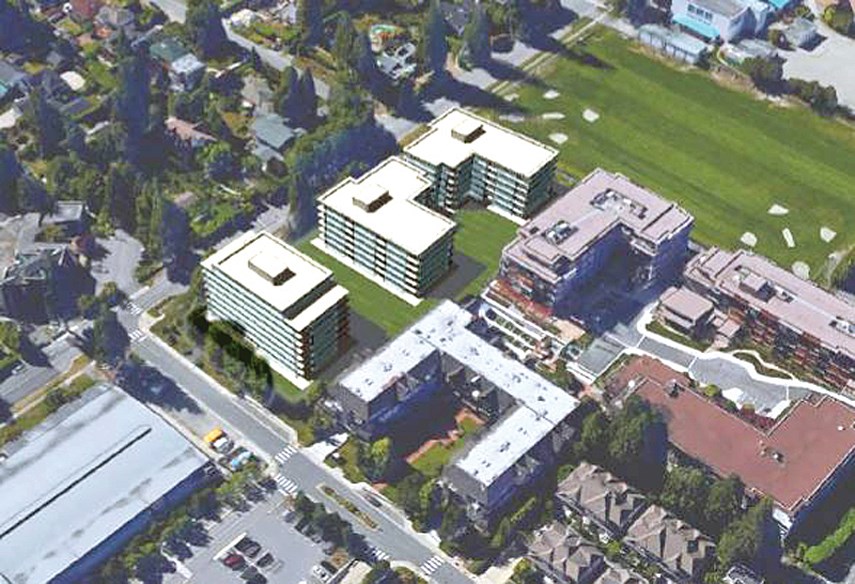It wasn’t that time stopped Monday night in West Vancouver, it was that it started. West Vancouver council slowly and decisively advanced a plan for 167 middle-class homes on district-owned 2195 Gordon Ave. The project is a long-awaited acknowledgement that, while West Vancouver may be an enclave, it’s not an island.
Over 20 years, West Vancouver’s population increased at an annual rate of less than 0.2 per cent, approximately one-fifth B.C.’s growth rate. West Van’s median age rose by eight years, its percentage of children dipped, and its vacancy rate tumbled to an abysmal 0.6 per cent.
In targeting what the district defines as moderate-income households (between $49,000 and $126,000) Monday’s move seems like a moderate response to an urgent problem. But with West Vancouver’s institutional flatfootedness and a political climate in which local governments are cowed by self-interested, highly organized residents, the Gordon Avenue project is revolutionary.
District of North Vancouver council has essentially abdicated on affordability, leaving the future of below-market housing on the North Shore to the City of North Vancouver and, hopefully, West Vancouver.
The Gordon Avenue project would be good for commuting West Vancouver teachers, great for those who want to live here and life-altering for those who don’t want to leave.
According a 2017 survey, one-third of West Van residents planned to move within five years. Most were pessimistic they’d be able to stay close to home. We can’t turn back the clock for yesterday’s residents but we can catch up with the times.
Well done, West Vancouver council. Now, onto the next one. The clock’s ticking.
What are your thoughts? Send us a letter via email by clicking here or post a comment below.



